It’s been one year since Michigan native Paul Whelan returned home after being wrongfully imprisoned by Russia on what he and U.S. officials call bogus espionage charges.
Former President Joe Biden personally greeted Whelan when he landed on U.S. soil.
But Whelan faced a harsh reality after the media spotlight faded. He’d lost his job and his home.
He lives now with his aging parents in Manchester, MI, and relies on donations to a GoFundMe account.
And Whelan says he’s having mixed success cutting through a web of state and federal bureaucracy.
Paul Whelan: (Interview edited for clarity.) Yes and no. In Michigan, you have to work here for a certain period of time before you file for unemployment. As I had been in a foreign prison, the work I was doing in the labor camp didn’t count. So Michigan rejected any claim for unemployment benefits. They were very sympathetic and wished that they could help me. We went through the appeal process. We spoke to everyone, government officials even spoke to the unemployment bureau on my behalf. But they said, at the end of the day, there weren’t any exceptions in the law and there was no way that they could do anything for me. This is an issue that we’re trying to take up with the Michigan Legislature to ensure that people in my situation return home, including a Michigan resident that’s currently being held wrongfully in Russia, they are properly taken care of.
As far as the federal government goes, the Levinson Hostage Recovery and Hostage-Taking Accountability Act says the government should provide five years of medical, dental, psychological care for returning hostages.
Quinn Klinefelter, WDET News: But Congress has never funded it,
PW: Exactly. And when I discuss it with the U.S. State Department, they say, “Well, Congress didn’t give us any money. But we’re not an insurance company anyway, so we’re not sure, even with the money, how we would provide that.” I’m trying to get in front of U.S. Secretary of State Marco Rubio and President Trump right now to discuss these issues. Because these are major concerns for the families and the hostages once they come back. Congress did a good thing, putting that piece into the law. They think that the State Department is providing this care for us, but the State Department isn’t. And I think if the right people get together and understand the situation, it’s one of these things that could be taken care of very quickly.
QK: Have members of Congress actually told you that they thought it was being taken care of?
PW: Oh yeah. As soon as I got back the House committee and the Senate committee that handle foreign relations, that were involved in my issue, said, “Hey, we’ve improved the Levinson Act since you’ve been gone. There’s this five-year health care provision.” Now they know that there’s an issue and the State Department knows they’re an issue. But it’s a matter of getting something accomplished, getting it funded, and then having the State Department actually provide the benefits to us.
QK: There were certain Michigan members of Congress that were trying to lobby on your behalf, as well as other hostages, to fix some of those issues. Have you gotten any sense from them as to whether there’s any movement, especially in the current political and financial era that we’re in?
PW: Congresswoman Haley Stevens and Congresswoman Debbie Dingell have probably done the most. I’ve interacted with those two the most on these issues. Haley has some bills that are going through Congress to add compensation for former hostages to the Levinson Act. Her and Debbie are also looking into why the State Department isn’t doing what Congress thought they should be. But it’s a slow process. One of the things that was passed recently says the State Department is supposed to issue a Certificate of Invalidity signed by the President. It basically says any arrest, trial or conviction in a foreign country when you’re wrongfully detained is null and void. Employers, people like that, should take the president’s signature as proof the conviction was fake and done for diplomatic means.
QK: Has Trump signed it?
PW: He hasn’t signed one for me yet. Again, this is something that Congress passed and the State Department’s supposed to be providing these certificates. I’ve inquired several times. It’s the Special Presidential Envoy for Hostage Affairs office that handles this sort of thing. It’s probably something minor. There aren’t that many of us. I think it’s something that would be easy to do. But we haven’t gotten to the point where they’ve issued these certificates. We’re working with the State Department, we’re working with Congress. I’m glad to have the partnership of many U.S senators like Michigan’s Elissa Slotkin, she’s doing a lot for hostages. She’s behind us. The same for Michigan U.S. Sen. Gary Peters. We have a lot of good representation. It’s just a matter of getting these things in front of the right people and making sure that the right things are happening.
QK: There have been several prisoner swaps of late involving the U.S. Have you stayed abreast of those developments? What’s your view of them been?
PW: Ten people just came back from Venezuela, which has a habit of giving people back and then grabbing another group. So we’re telling everyone to stay out of Venezuela. Iran has returned citizens. We’ve had citizens come back from other countries. There have actually been some citizens who were rightfully held in prison who have been transferred back to the United States through the International Prisoner Transfer Program, which is very good. The U.S. Justice Department owns that.
I’m still in contact with several former hostages, including one from Dearborn, Sam Farran. He and I were in the U.S. Marine Corps together. He was held about 10 years ago for six months by the Houthi rebels and released. He has a very interesting story and wrote a very good book about his experience and how the government interacted with him. And former hostages like Evan Gershkovich, Alsu Kurmasheva, Brittney Griner, Trevor Reed, people that were very closely related to my situation. We email back and forth, we text, we have phone calls. I always say it’s kind of like the Island of Misfit Toys, ha! It’s a unique club. There are several other former hostages involved and they give us a lot of good insight about the things we’re going to face and how to overcome obstacles with the government.
QK: You have also talked about staying in touch since you got back with some of the people who had been in the Russian labor camp with you. Are you still communicating with them?
PW: Yes. Interestingly enough, the prison camp I was in is now a prisoner of war camp for Ukrainian soldiers. The people that I was in prison with are now in different camps around the country. They still have burner phones (obtained by bribing guards.) Russia is still as corrupt as ever. So we stay in touch using Facebook, Instagram, WhatsApp, Telegram, these different online services. It’s interesting because they’re telling me about life in different penal colonies. They’re telling me about the corruption there and the way things are done in these other areas. They have a lot of challenges going to these very, very stark areas, the backwoods of Russia, where there’s a lot of corruption, especially now that the economy is really bad there.
I continue to get feedback from prisoners, some firsthand, some secondhand, that have gone to the war. They’re telling me where they are.
QK: Are they calling you from the front lines?
PW: Yeah, they’re sending text messages and whatnot, saying where they are, what equipment they do and don’t have, what food they have, what the conditions are like. When I was in the camp I was passing that back to our people. And here I’m doing the same thing. It’s a bit of a moral obligation to help the people in Ukraine. And also to give the information to our people to use for the purposes of shutting Putin down and ending the war. Too many people have died on both sides and unfortunately a lot of people from my camp went to the war. That’s the way things are in Russia.
Some of the prisoners from my camp have been released and sent back to their own countries. It’s interesting to see how they are now overcoming being incarcerated in Russia and getting back to normal life where they’re from.
QK: You had talked about trying to get back to your own normal life, about the trauma from having been in a labor camp. What would you want people to know right now, one year down the road from where you had this intense spotlight on you, the president putting a pin on you and so on?
PW: The only real PTSD issue that I deal with is when I’m in a hotel room. When I was arrested, I was violently arrested by a rogue foreign intelligence agency in a hotel room and I was dragged out. As soon as I came back home I started traveling, visiting Washington, D.C., visiting different places, friends. And when I stay in hotels, it brings back that memory. I’m past the point of stacking tables and chairs and dressers and things in front of the door to keep people out. But I am reminded that not that long ago I was in a hotel room on vacation and I was violently arrested. In terms of getting back to normal, I’m applying for jobs. But they say, “You have the training, experience and education. But you also have a six year gap in your career that other candidates for the same position don’t have.
QK: Does it matter if they’re aware of why you would have a six year gap of any type?
PW: Everyone’s aware. Everyone knows that this occurred. This is one reason that we’re trying to get the Certificate of Invalidity from the president to help with these situations. It’s extremely trying, especially when you don’t qualify for unemployment.
QK: You’re still staying with your parents, right?
PW: Yeah. You’re basically doing everything from scratch by yourself. I’m still using a GoFundMe account to take care of necessary living expenses. I’m also using it to advocate for hostage aftercare and helping the people that are still in the camps overseas that are really just as wrongfully detained as I was.
I’m getting a lot of support from the local communities. If I go to Detroit Metro Airport, people at the Delta counter know me. If I go into the Sky Club, they know me by name. They were watching TV all day in these clubs in the airport and they’d see my picture. Or they find out my name and they’re like, “Oh, you’re that guy the Russians held for five-and-a-half years.” And it’s funny because it’s happened all over the United States, not just in Ann Arbor or Michigan. It’s a nice feeling to know that people were paying attention and that there is that interest. And we have a lot of good support from Congress. The hostage issue is an American issue. It’s not one state over the other. Every Congress person, every senator, is involved.
QK: It’s bipartisan?
PW: It’s probably the only bipartisan thing that’s going on in Congress right now. There’s a subcommittee in the U.S. House working on making sure that the IRS doesn’t come after us with penalties for taxes owed while we were gone or for not filing properly. They’re trying to work on Social Security reporting for the period that we were gone, so that we don’t have a zero for our income. When I start drawing Social Security, if there’s a six year gap because of a hostage issue, that means I get much less in benefits than my peers would. And then just looking at other areas of the government, someone needing help to get a driver’s license or a professional license that they now have to go through retraining to get. There are some licenses that I’ve had to acquire again that the GoFundMe account is paying for.
QK: You also have a new license plate on the vehicle that you were leased.
PW: The state of Michigan was quite nice. They gave me a new Marine Corps veteran license plate and customized the number for me. It’s “5Y7M5D.” That stands for the five years, seven months and five days that I was wrongfully detained. It’s a bit of humor showing that the Russians didn’t win in this situation, that I’m going back to my normal self. I tell people what the plate stands for and they snicker. And that is the sort of thing we should be doing. If I didn’t travel, the Russians would have won, right? If I don’t talk about my experiences, then the Russians would have won.





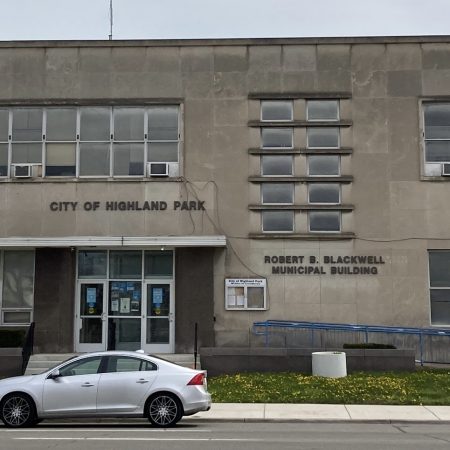




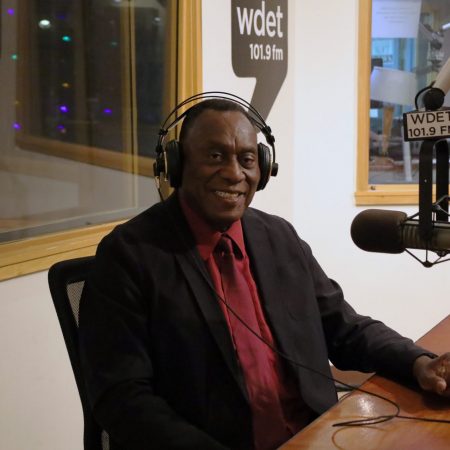
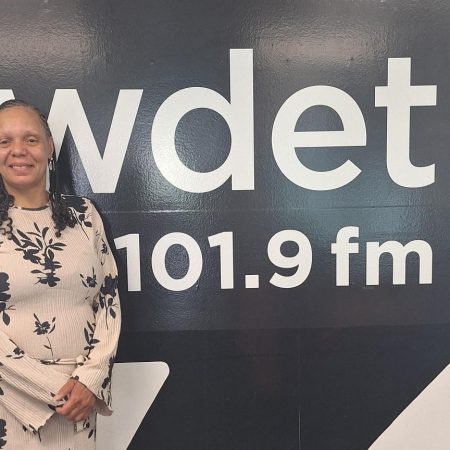


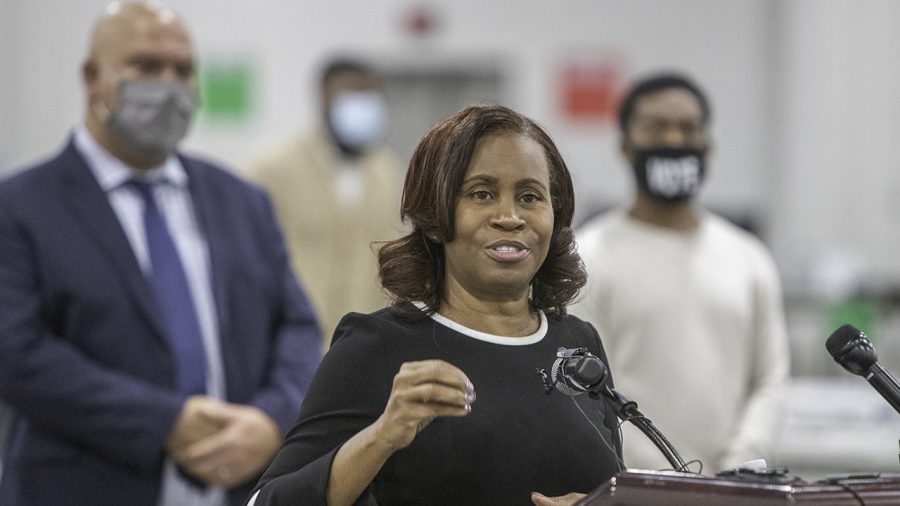
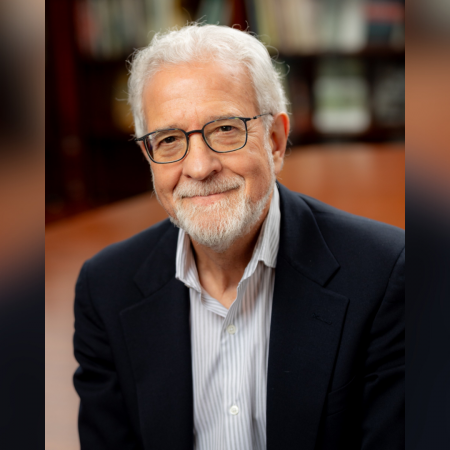
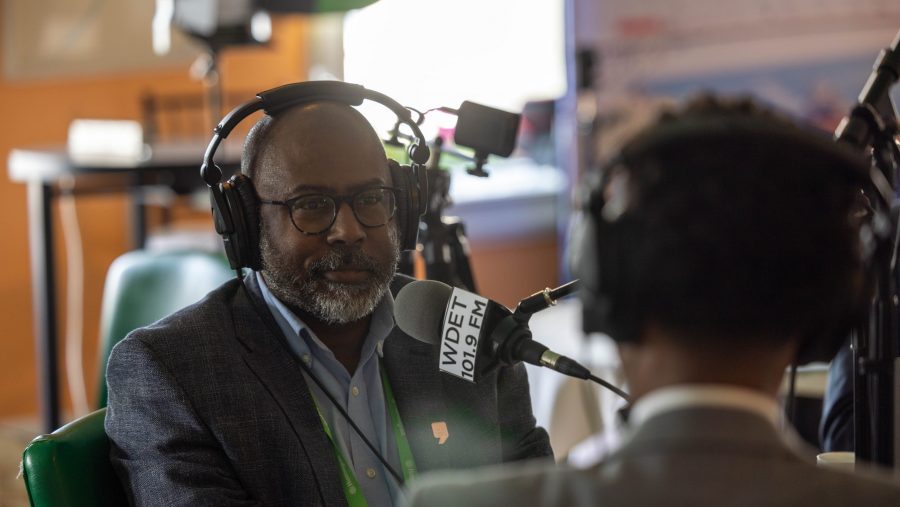

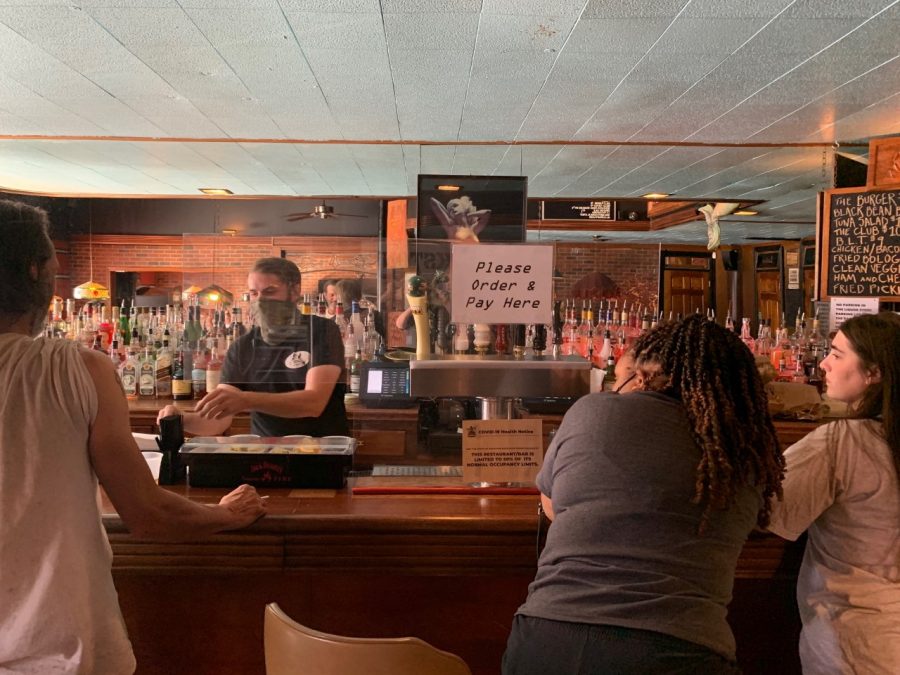
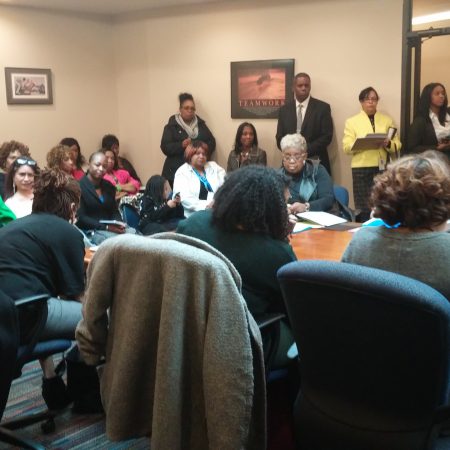


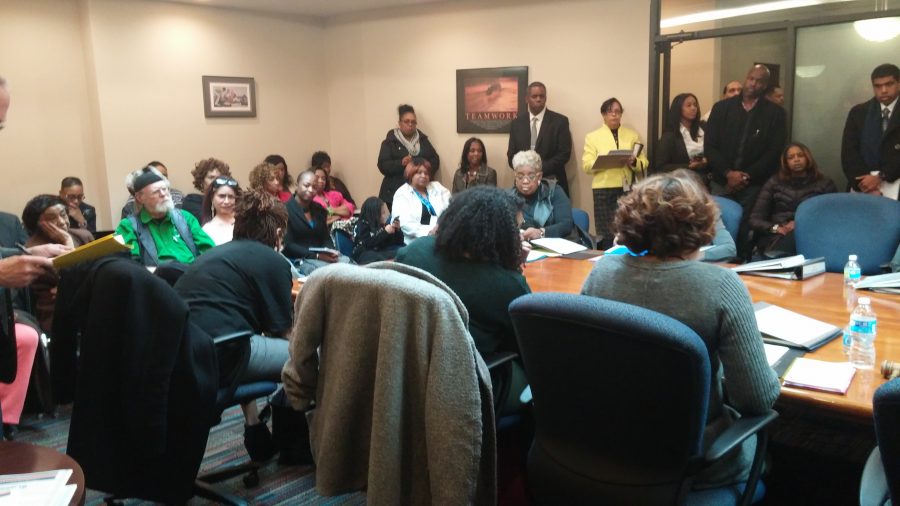



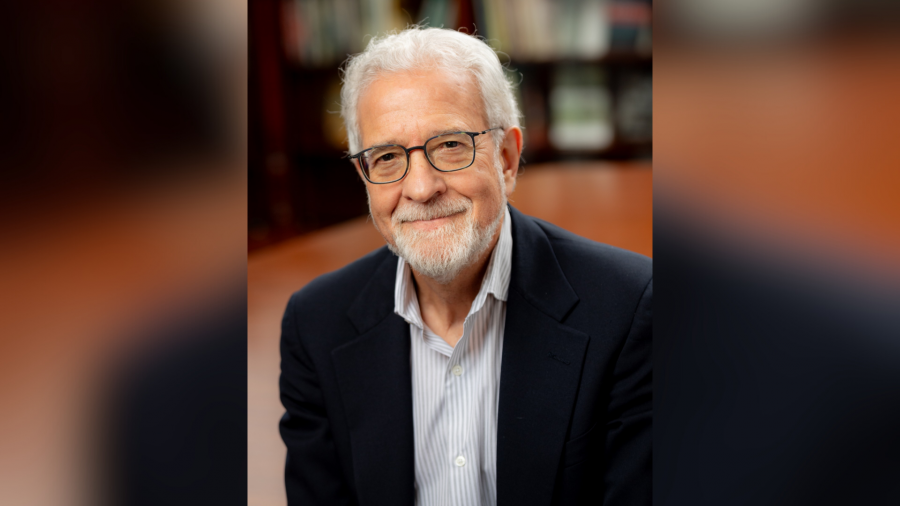
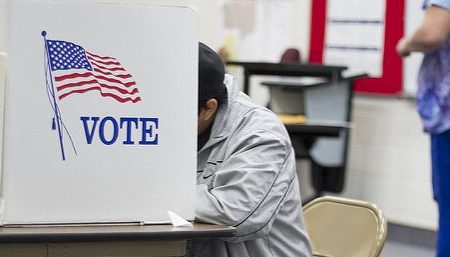





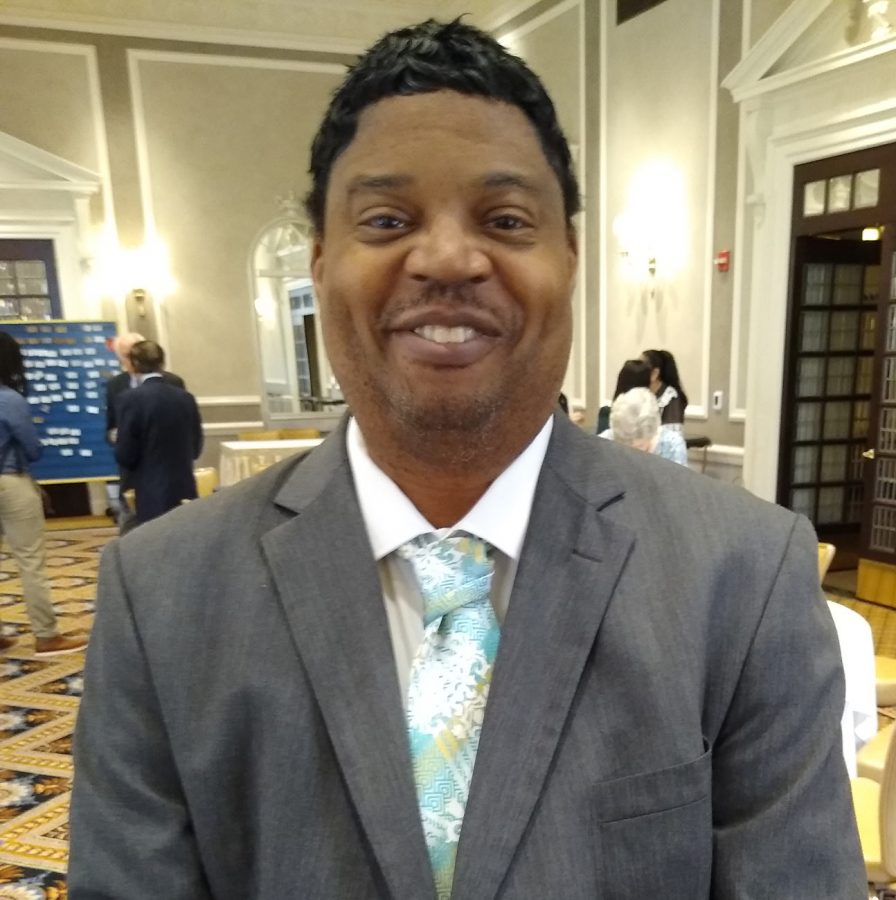 QK: Obviously whoever becomes mayor, you’d want them to address that kind of issue. I would think. What other issues, if any, do you see as important to the city that should be worked on?
QK: Obviously whoever becomes mayor, you’d want them to address that kind of issue. I would think. What other issues, if any, do you see as important to the city that should be worked on?